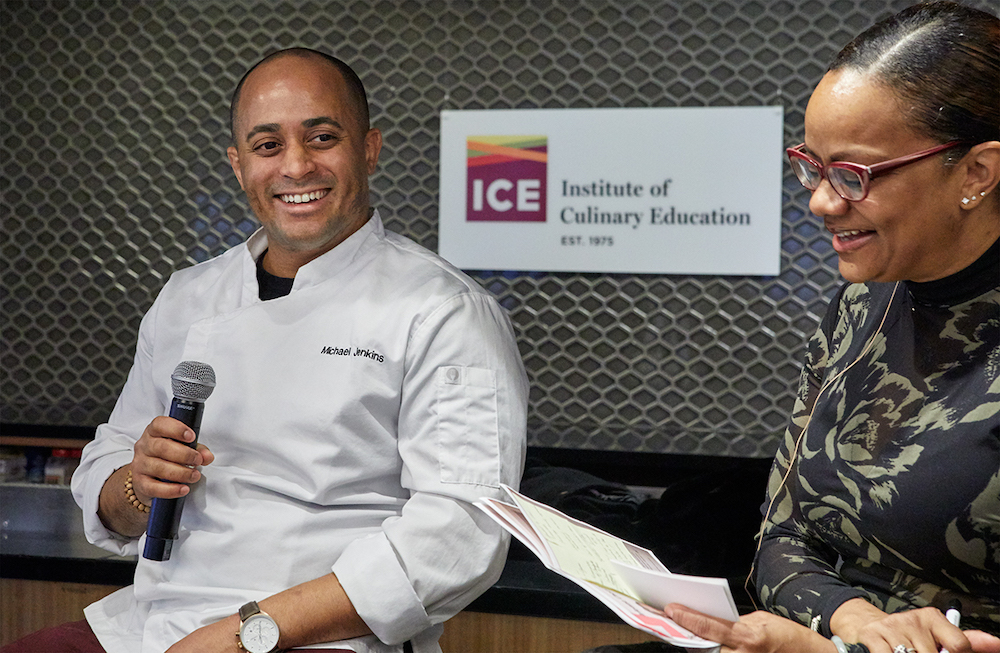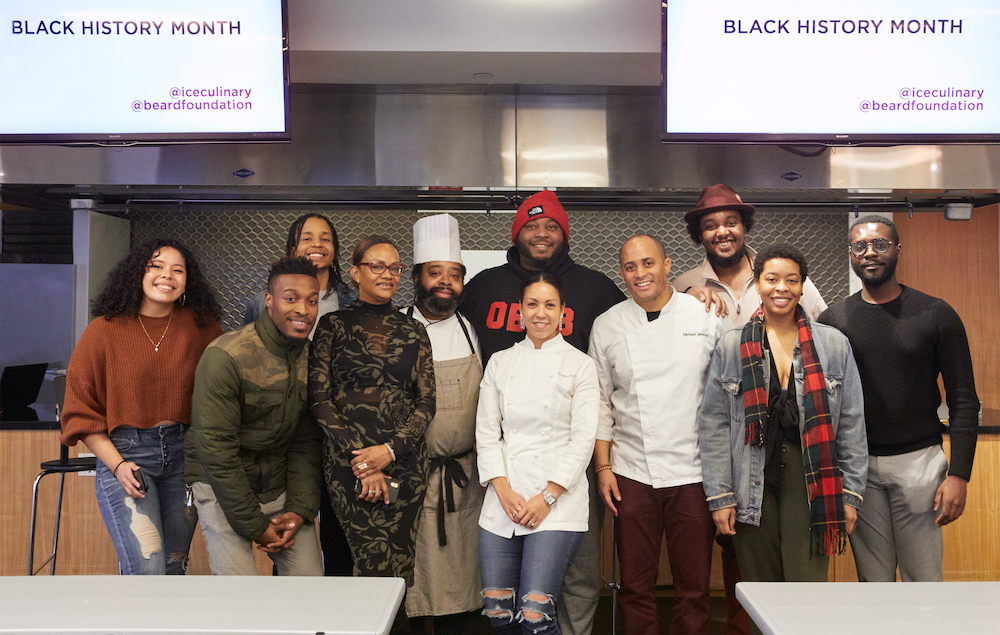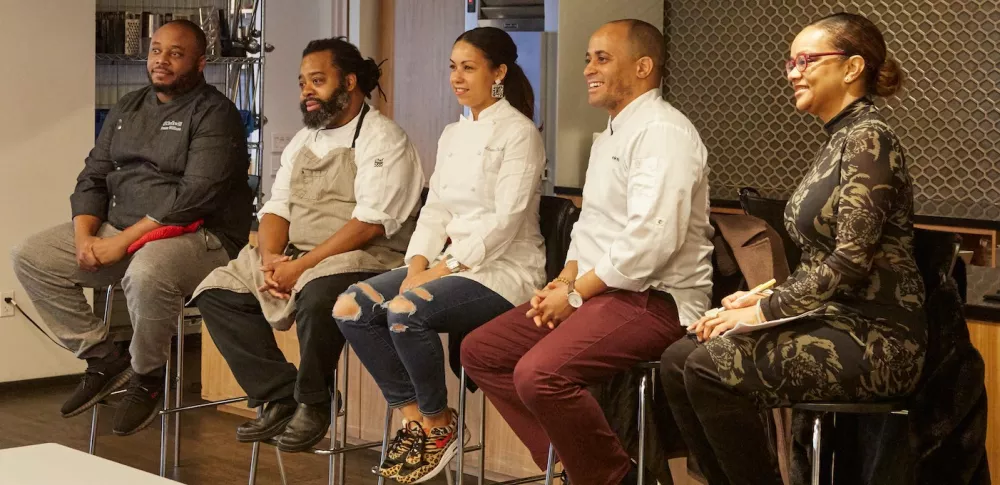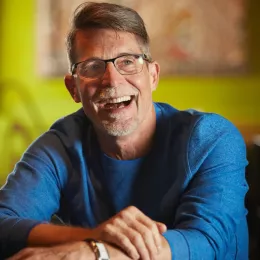Culinary Arts Chef-Instructor Michael Garrett and ICE alumni Adrienne Cheatham (Culinary, '07), Michael Jenkins (Culinary/Management, '06) and Kwame Williams (Culinary, '07), visited our New York campus for a panel moderated by James Beard Foundation Culinary Director Jameeale Arzeno in honor of Black History Month.
The chefs spoke to students about their culinary career paths, from inspiration and influences to experiences at prominent New York City restaurants, like The Cecil and Le Bernardin, before sharing unique perspectives on culture, comfort zones, boundaries and affecting change.
“I try to specifically hire a really diverse kitchen and I’m really proud that when you walk in there, very few two faces look the same,” said Butter Chef de Cuisine Michael Jenkins.
"I need to be part of the people who change the stigma," said Kwame of the Jamaican cuisine at his former restaurant, Vital Dining in New Jersey. "In terms of Caribbean, I stood up in saying 'I’m part of the next generation who is bringing forth the next phase.'"
After five years of running his own concept, Kwame's exploring creative ways to create balance in the restaurant business and still be profitable. Adrienne may have the solution with her switch from fine dining to private cheffing and a monthly supper club, while Michael Jenkins recognized food TV appearances can be a beneficial source of incremental income.
"I’ve been on 'Cutthroat Kitchen,' 'Beat Bobby Flay,' 'Chopped,' 'Iron Chef America...' I suppose it is exposure and it’s certainly experience — and any experience is good experience."

Adrienne advises new and international experiences: "Travel wasn’t always something I could do and to combat that, I would go to a different neighborhood that had a very strong culture and try the food there," she explained. "It’s incredibly important, and if you want to push yourself outside of your comfort zone, go all-in on another cuisine. Go work for an Italian chef, work for a French, Korean, Japanese, Chinese or Oaxacan chef. Go work for different people.
"I was in the program at ICE, where I got to work with chefs from all over that had tons of different backgrounds and through that, I started to see the commonalities in technique that tied in with Southern food. When I’m working in French cuisine, I’m like, 'oh, you call that mornay? That’s just how you make mac and cheese…' Once you learn all the different techniques and travel and see different things, then you can start to bring your own worlds to it."
Kwame recalled the process of bringing his world to his menu. The entrepreneur said it took a year and a half after opening a restaurant to label his own food Jamaican. "I was just naturally doing the food that was passionate to me. As a first-generation American, I was using the flavors that I’m accustomed to at home with all the cooking styles of the kitchens that I’ve worked through," he explained. "Everyone was looking at it and asking 'what is this?' It wasn’t until I got to the space where I was comfortable enough to say 'this is me' and stop trying to fit in a box, that it became what it became."

Michael Garrett encouraged students to embrace that interpretation of cultural resonance. "We’ve expanded our culinary knowledge, our culinary world, and the same 25 dishes that we grew up on, whether it be black-eyed peas, cornbread or pepper pot," he said. "We all respect that Caribbean, Southern, African coastline as a food. We want to move it to the modern age. What we would ask you as guests: Accept what we’re doing, understand what we’re doing … This is not how your grandmother did it but it’s okay. Your grandmother’s not cooking."
The panelists reached a consensus that with food and culture, change happens beyond comfort zones.
"We’ve traveled the world, we’re bringing new things and new ideas to these same dishes, and of course it’s going to taste a little bit different, or maybe it’s going to be a little cleaner, or maybe it’s going to be a little more health-supportive because you can find a lot of our Southern-style foods now being veganized or vegetarianized, and they’re amazing," Michael Garrett continued and referencing his peers' dining destinations outside of the kitchen classrooms at ICE, advised: "Be open to whatever they’re creating, have an open mind. Don’t just go to their restaurants and say, 'this ain’t fried chicken like my mom had or like grandma had.' Enjoy the experience, enjoy the story, enjoy their presentation of what they’re trying to do. And maybe you can learn something."
See more events on campus, and venture beyond your comfort zone for culinary career training at ICE.




